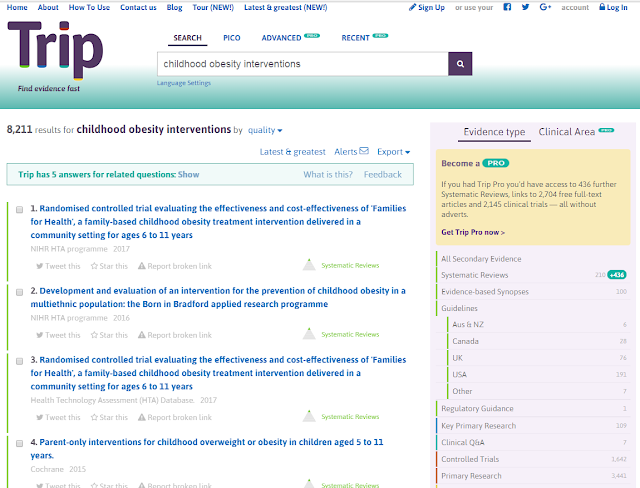What
is it?
TRIP – meaning Turn
Research Into Practice – is a clinical search engine, that allows you to search
for good-quality research evidence.
Key
Features
There are a number of
search options:
- Simple free-text search
- PICO search
- Advanced search options
- Research articles
- Evidence reviews
- Guidelines
- Images
- Videos
- Patient information
How
can it help you?
TRIP is a good resource
to help you to find high-level, good quality evidence.
How
to access it?
TRIP is available in 2
versions.
- Standard version – this is freely available on the Internet. All users can access this.
- Pro Version – this is a subscribed version and will give you additional features such as images and video as well as some full-text links. NHS users can access the Pro version via the NHS network.
Video
demo
Watch this video from
founder Jon Brassey for more information about TRIP:
eTutorial
There are a number of video tutorials
to help you get started with TRIP.

Comments
Post a Comment